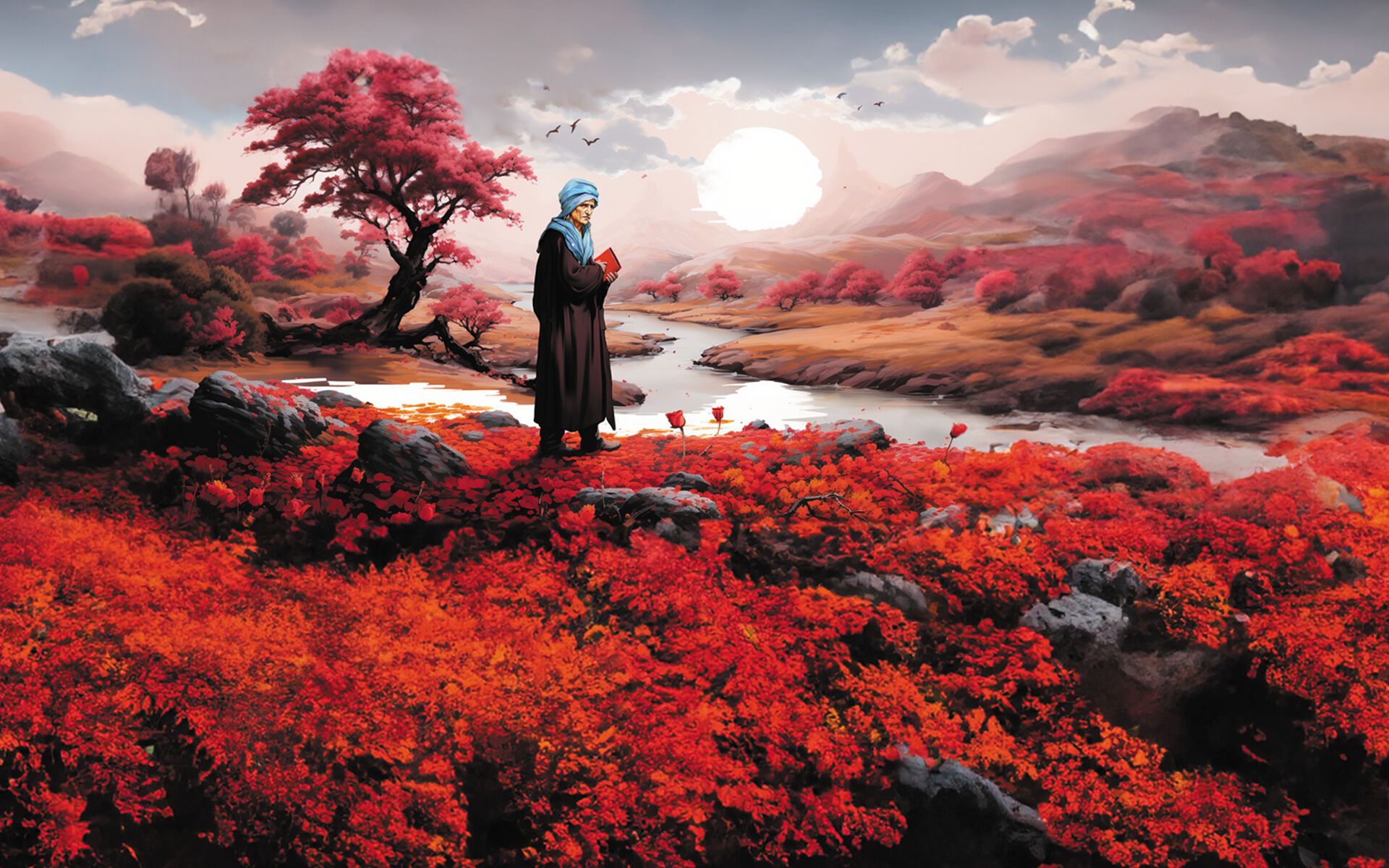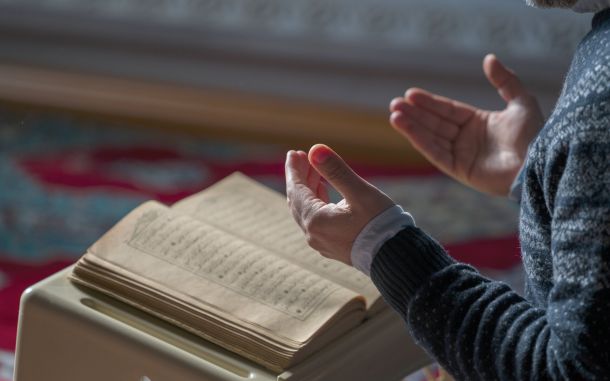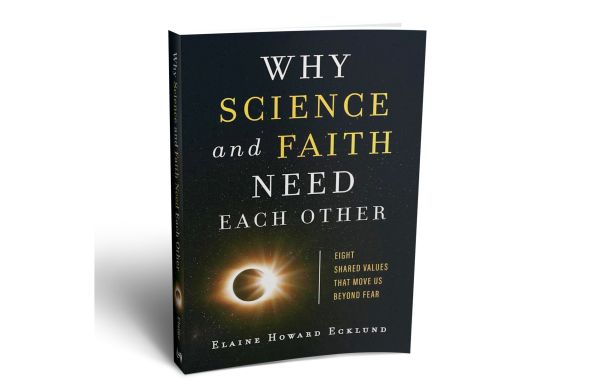Interpreting With Wisdom

In This Article
-
Nursi does not jump into quick conclusions based on thousands of narrations. He rather focuses more on the main inferences from these narrations and tries to reach a wisdom-based commentary.
-
Nursi theorizes that the struggle of Husayn ibn Ali against the Umayyads, which was the beginning of a great break in history, was the “fighting for religion against nationality.”
Scientific positivism assumes history and social events to follow a straight line. In this view, divine revelation and the virtuous life it prescribes are not factored in, for human intellect is accepted as the only source of knowledge. Political, psychological, and sociological factors are seen as the only factors shaping history.
After the Second World War, however, some started questioning this approach, especially as postmodernity started to dominate the public space. Many Muslim intellectuals have also been under the influence of these developments, while many of them have tried to interpret historical events not only through what was recorded, but more so with “wisdom.” Bediuzzaman Said Nursi (d. 1960) was one those. In this article, we will explore Nursi's wisdom-based commentary about some events that took place among the Companions of the Prophet Muhammad (pbuh).
Several conflicts and battles that brought Companions of Prophet Muhammad, peace be upon him, against one another, are some of the most confusing and heartbreaking events in Islamic history. These conflicts resulted in Muslims splitting into camps that continue until today. Upon being asked about the nature of the battles starting in the time of Ali ibn Abi Talib, Nursi does not immediately jump into an analysis of thousands of authentic, weak, and fabricated narrations (15th Letter). He focuses more on the main inferences from all these narrations and analyzes ideas about the emergence of the Battle of the Camel, Siffin, and Karbala.
According to Nursi, the Battle of the Camel between Ali ibn Abi Talib and Talha ibn Ubaydullah, Zubayr ibn Awwam, and Aisha Bint Abu Bakr, was a struggle between “absolute justice” and “relative justice.” When this debate in search of justice was carried on to the field of politics, conflict became inevitable. It is important to note that this demand for justice by the Companions of the Prophet Muhammad (pbuh) (sahabah) is evidence to the great progress and sensitivity they achieved in human rights at that time. For a fair judgment, it is also necessary to know about the previous lives of these Companions. While Nursi emphasizes that Ali was right, he refrains from historical details, such as Aisha being in Mecca at that time and not experiencing the atmosphere in Medina, or that she had met and agreed with Imam Ali before the Battle of the Camel. Moreover, Nursi describes other reasons cited by historians as nothing more than "excuses,” i.e., not real reasons.
In all his works, Nursi usually tries to address possible questions that may occupy people’s minds. He does the same in this matter (15th Letter) and also explains why Ali was relatively unsuccessful compared to previous caliphs. His explanations here show that he moves beyond historical details pertaining to the particulars of those events and that he focuses more on universal interpretations and lessons that can be learned through them. We understand from Nursi's explanations that, alongside visible political actors, there are key figures in history who shape the developments with their thoughts and ideas. Ali was a key figure in history from many angles: he was the Prophet's son-in-law and being cousin at the same time. He stood at the rare, critical place where perfect representation of both religion and politics was embodied in his person. Throughout his time as the caliph, he demonstrated that in the politics-religion relationship, religion is primary and takes higher priority. Politics feed on ideology. Politics is a carrier. If politics lacks value, it turns into brute force and vanity. Indeed, throughout history, great people from Ali’s lineage have succeeded in keeping the middle path in the relationship between religion and politics, thanks to the lessons they learned from this painful event in history. Nursi says that as a result of this incident, Ali and his family gained "a spiritual reign much higher than those of political actors.”
Nursi sees Ali's confrontation with Muawiya ibn Abu Sufyan at Siffin as the battle of the “caliphate” against the “sultanate.” In other words, during his reign, Ali was following the groundbreaking principles of Islam on human rights and while doing so he took into consideration the Hereafter, for that is where justice will be served in absolute sense. Muawiya, on the other hand, thought that if he could set up the sultanate system, which would pass from father to son, there would be no fights for the throne, and therefore Muslims would be at peace and no blood would be spilled. The difference in their respective approaches to politics was while Ali was in favor of strict adherence to original ruling (azimah), Muawiya preferred an easier option permissible under certain circumstances (ruhsah).
Nursi theorizes that the struggle of Husayn ibn Ali against the Umayyads, which was the beginning of a great break in history, was the “fighting for religion against nationality." According to Nursi, the Umayyads kept Arab nationalism as a basis for their ideology and prioritized nationalism instead of relying on Islamic bonds. This was damaging in two ways, especially considering the fact that Islam was rapidly expanding to other nations during their reign: First, this policy damaged relationships with other nations. Second, favoritism emerged because of nationalism, and this resulted in a loss of justice. This was completely against the spirit of Islam which has cut through the racism of the Age of Ignorance (Jahiliyyah); in Islam there is no difference between a noble Qurayshi and an Abyssinian slave (See, Muslim, Imara 53-54; Abu Dawud, Adab 111; Ibn Majah, Fitan 7; Ahmad Ibn Hanbal, al-Musnad 2:488). Therefore, Imam Husayn fought for the freedom given to people by religious bonds in the face of the nationalism he saw in Yazid. He fought rightly in his case and eventually died a martyr.
At this point, Nursi raises some questions, which make sense in a context that values divine revelation: If Husayn was on the right side, why did he fail? Why did the divine Destiny and Compassion allow him to be subjected to such a tragic end? Why were Husayn and his family treated so harshly?
The first part of Nursi’s explanations includes socio-psychological analyses. The second part contains interesting metaphysical analyses from the point of view of destiny. According to Nursi, the idea of revenge against the Arab nation, not because of the close followers of Imam Husayn but because of the wounded national prides of other nations that joined him, damaged the pure and bright careers of Husayn and his followers and caused their defeat.
The wisdom behind this disastrous end, from the perspective of destiny, is that Hasan and Husayn became candidates for a spiritual sultanate as they are the grandsons of the Prophet Muhammad (pbuh). The perfect harmony of politics with religion in this world is unattainable. This disastrous end showed the ugliness of politics to all the descendants of the Prophet (pbuh). Thus, instead of being ordinary governors, they became the friends of God (awliya).
Nursi also reflects on the problem of evil. According to him, there must be a meaningful explanation to the brutal murder of Imam Husayn and his family who were unable to defend themselves. In civilizations in which divine revelation is upheld, human free will is evaluated together with God's will. The human is free, but this freedom is within the broad universal will of God. As a rule, God is on the side of the righteous. If the opposite happens, there must be another logical answer. Here, Nursi seeks the answer to this problem.
Nursi says that there were four reasons that caused merciless cruelty during the Umayyad reign. 1) Ruthless politics which adopts, “Persons can be sacrificed for the government’s security and the continuation of public order,” as a principle. 2) Cruel racism or nationality – and the Umayyad reign was based on nationality – which adopts the cruel principle of "Everything can be sacrificed for the good of the race or nation." 3) The historical rivalry between Umayyads and Hashemites continued with some individuals like Yazid, the son of Muawiya, who treated them with merciless cruelty. 4) The Umayyads viewed the people of other nations as slaves, even if they became Muslims. The fact that these non-Arab people joined the side of Husayn hoping to avenge their wounded national pride provoked the Umayyad’s racial urges, which led to the infamous massacre.
Nursi adds that these four reasons are apparent reasons and explains what will become clear when this sad event is taken into consideration from the perspective of destiny, where all the reasons are aligned at once. “Imam Husayn and his relatives were rewarded with a spiritual kingdom so valuable and a spiritual rank so elevated that the suffering they endured at Karbala pales in comparison and would seem to them easy enough to bear. Consider the rank that privates may attain through martyrdom after an hour’s torture, which others obtain only after a decade of effort. If these martyred privates were asked how God treated them, they would answer that they had earned too much in return for too little a cost.”
Fethullah Gülen elaborates further on the subject. He says that the revolution experienced by the Companions of Prophet Muhammad (pbuh), thanks to Islam, brought them to the top in terms of human rights and that there was a conflict with societies that did not reach the same level in this regard. As a result, the Companions, who reached an extraordinary point in defending their rights, came into conflict with the communities that were deprived of the same upbringing.
Gülen also points out the positive aspects caused by those factious events. Just like when you scratch a tree, it alerts and renews itself, these events protected the religion and ensured the systematization of all Islamic sciences. Experiencing these unpleasant events, following the geographical expansion that came at a speed not seen in the history of humanity, taught an incredible lesson in terms of protecting religion by systematizing the Islamic sciences and highlighting the sensitive place of politics, which is the most difficult field of the representation of religion in human life (See, Zihin Harmanı, pp. 154-161; Bahar Neşidesi, pp. 252-260.)
Historical events can be analyzed from many different angles. In this matter, Nursi's approach teaches us two things: First, it is not easy to find the truth among thousands of narrations in historical events where great conflicts took place. The second is that we should try to see the hidden wisdom behind the events. Unbiased historians can achieve the first, at least to a degree, but being successful at both the first and the second with regards to the Islamic history depends on multiple factors. These factors include knowing the isnad system—which is crucial in the transmission of historical narrations that play an important role in the preservation of religion—looking into the matter comprehensively and with priority to canonical decrees and sound reports, and trying to explore the possible wisdom that lies behind the events as suggested by the Qur'an.
References
- Bediuzzaman Said Nursi, The Risale-i Nur Collection, The Letters (Epistles on Islamic Thought, Belief, and Life), Translated by Huseyin Akarsu, The Light Inc., New Jersey 2007.
- Hilmi Ziya Ülken, Uyanış Devirlerinde Tercümenin Rolü, Türkiye İş Bankası Kültür Yayınları, İstanbul 2020.
- Fethullah Gülen, Zihin Harmanı, Nil Publications, Istanbul 2011; Bahar Neşidesi, pp. 252-260, Sureyya Publications, 2017.









